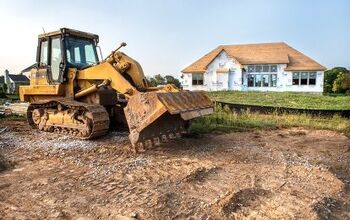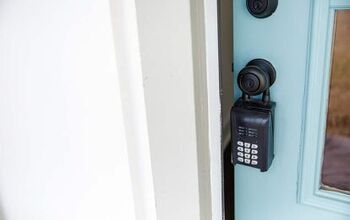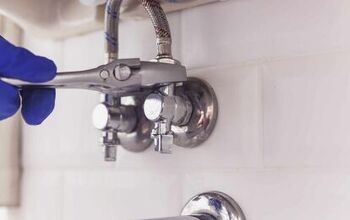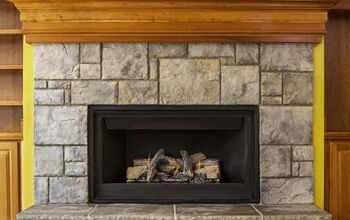Basement Smells Like Ammonia? (Possible Causes & Fixes)

If there is one cleaning agent that has a notoriety for a bad stench, it’s ammonia. It smells like urine, and it’s a foul stench that can easily overpower noses. When you have a basement that smells like ammonia, then you have a serious issue on your hands. You probably want to be rid of that stink as soon as it pops up, but what’s causing it?
If your basement smells like ammonia, check to see if you have a cat that’s sprayed your walls with urine. No cat nearby? It can also be caused by the early stage of mold growth, a reaction between the soil and basement’s barrier, or the existence of pests like mice.
Ammonia is a rather foul smell, and most people tend to associate it with the smell of cat pee. It could be a good idea to get a hold on your basement smell before it gets worse.
Do You Need Mold Inspectors and Testing Services?
Get free, zero-commitment quotes from pro contractors near you.

What Makes My Basement Smell Like Ammonia?
That gross cat urine smell has got to go, right? Of course, it does! Getting a handle on it starts by figuring out what’s causing it.
Cat Pee
Do you have a little fuzzy buddy around your home? Or, did your home’s prior owner have a couple of cats to keep them company? If so, then you probably have a pretty straightforward case of having cat pee in your basement. This is a fairly easy (though unfortunate) fix for this is to use a cleaner geared towards cat urine to get rid of the odor.
Finding the cat’s pee is usually one of the hardest parts of recovering from this problem. So, just do like Toucan Sam and “follow your nose.” In some cases, you may actually be able to see the stain on the walls of your basement or on the floor near your cat’s litter box.
It’s worth noting that most cats that spray urine or refuse to use their litterbox are either sick or not spayed/neutered. If this is a fairly new occurrence, a trip to the vet might be in order. It could help stop your cats from spraying and also save their lives.
Mold Growth
If it’s been years since you’ve had a cat, then the other major issue that you may have is mold. Certain types of mold will cause a smell that resembles ammonia in a basement. This is especially noticeable after a rainy season or moments where your dehumidifier breaks. If you believe this to be the case, you will need to make sure that the mold is gone.
You will have to wipe down the mold-affected area with a fungicide. You can make your own with white vinegar and water, and apply it by mopping it up. Calling a mold remediation crew to help you out is also a good idea. In many cases, this will do the trick. You can prevent it from recurring by installing a dehumidifier in your basement.
It’s important to remember that mold growth doesn’t always show itself visually. Or rather, it may be harder to spot since it is just in its beginning stages. If you notice something that appears like a faint white or grey dust that seems to be emitting the smell, that’s mold.
Soil-Barrier Reaction
If your area is dry as a bone and cat-free, then you might have a much rarer issue on your hands. In around 5 percent of all homes, soil will have a strange odor as a result of the decomposition of plant matter. This often happens in areas where peat moss is common enough, but you may be able to see it in drier areas.
This tends to happen when your soil’s pH level is out of whack and when your basement has an encapsulation as a part of its build. When the pH of your soil is too basic or too acidic, you will end up having a reaction that occurs with the encapsulation of your home’s basement. The same can happen with crawlspaces.
You may need to get a crawlspace expert to figure out how to stop this reaction from happening. This means that you may have to call a professional to try to get the issue fixed. This can include pH testing, installing a new ammonia reducer, or just having a service call to an encapsulation expert.
Pests Running Amok
Most of the time, the smell of ammonia is associated with cat urine. However, people tend to forget that other animals can release an ammonia odor when they pee, too. More specifically, rodents tend to have an ammonia-like smell in their urine. This is particularly true with mice and rats.
Take a closer look at your basement. If you notice the following issues, then you may need to call an exterminator soonish:
- You have tiny little brown rice pellets in your corners or near food storage. Those aren’t rice pellets. Those are mouse droppings, and that’s a surefire sign that you have mice living in your basement. If you see a lot of them, then you may want to call an exterminator since this suggests that your pest problem is out of control.
- Small holes exist in your cardboard boxes and bags. This is a telltale sign that mice have been chewing through your stuff.
- You have actually seen mice in your basement. Even if you think it was just a fleeting shadow, it’s pretty safe to assume that the thing you saw was probably a mouse. The problem is that mice don’t just randomly pop by. If you’ve seen them in your basement, it’s because they’ve already made themselves at home.
- Occasionally, you hear skitters in your walls or smell something rotting. Most of the time, mice and rats are not going to make much noise. Once in a while, though, you might hear a squeak or a scampering sound. If a mouse gets stuck in your wall, it’ll die and start to decompose, giving off a rotting odor.
I want to point out that mice and rats are no laughing matter. They are a legitimate health hazard for you as well as everyone in your home. These critters can carry diseases, taint food, and even chew through electrical wiring. If you have any inkling that mice might be living in your basement, it’s time to call an exterminator ASAP.
Is An Ammonia Smell In The Basement Dangerous?
Honestly, it kind of is. Ammonia, in large quantities, can be a lung, eye, and skin irritant. That alone is bad enough. What’s worse is that many of the causes of this particular odor can be indicative of more pressing matters for your health.
Mold growth and a new family of pests, in particular, should be reason alone to end up getting worried about your basement’s livability. At the very least, the smell of ammonia can be a deeply unpleasant thing to deal with. So, try to address this sooner rather than later.
Should You Call A Professional?
It depends on what is causing it, as well as your ability to determine the root cause of it. If you know that it’s cat urine or mold, then your best bet is to try a DIY cleanup. People who had the misfortune of getting mice in the basement might also try to get rid of them on their own before they call an exterminator.
However, if you find yourself in a situation where your soil pH is raising a ruckus, you need to call a professional. That’s not the type of damage that can be remediated with ease on your own. In fact, many professional contractors might not know what to do, either. It may take several attempts before you can find someone who is qualified for it.
Do You Need Mold Inspectors and Testing Services?
Get free, zero-commitment quotes from pro contractors near you.

Related Questions
Why do I smell like ammonia in my house?
The most common reasons for ammonia-like odors in your house include cat urine that hasn’t been cleaned up as well as spilled cleaning solvents. However, it can also be caused by an extreme mouse infestation. Deteriorating building materials can also have a similar scent, though this is a rarer issue that most people shouldn’t worry about.
What kinds of mold smell like ammonia?
If you smell ammonia near an outcropping of mold or mildew, you need to address that immediately. Many dangerous types of mold tend to smell like ammonia after they are exposed to moisture, including black molds.
What is the best way to purify the air in your basement?
If your basement has a foul smell, then you need to treat the root cause of the odor first. Once the initial cause is fixed, you will be able to let the smell dissipate. Some homeowners like to speed up the removal of the odor by sprinkling baking soda to absorb bad smells in carpeting.Another option that you can use to directly purify the air in your basement is to install an air purifier and let it run. Of course, that’s a fairly obvious fix.

Ossiana Tepfenhart is an expert writer, focusing on interior design and general home tips. Writing is her life, and it's what she does best. Her interests include art and real estate investments.
More by Ossiana Tepfenhart



























